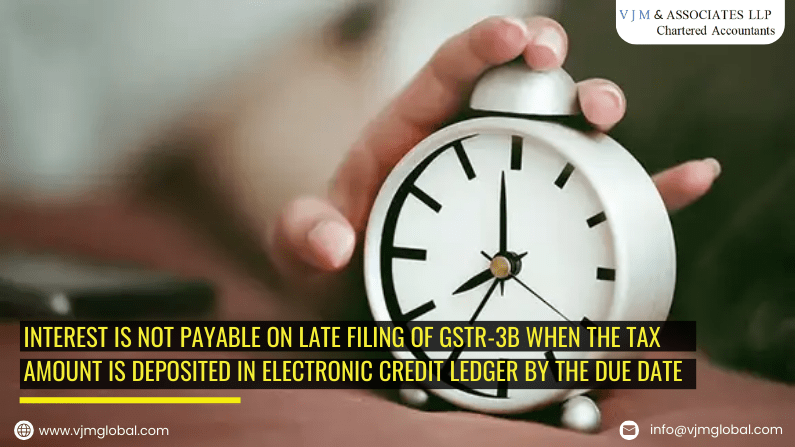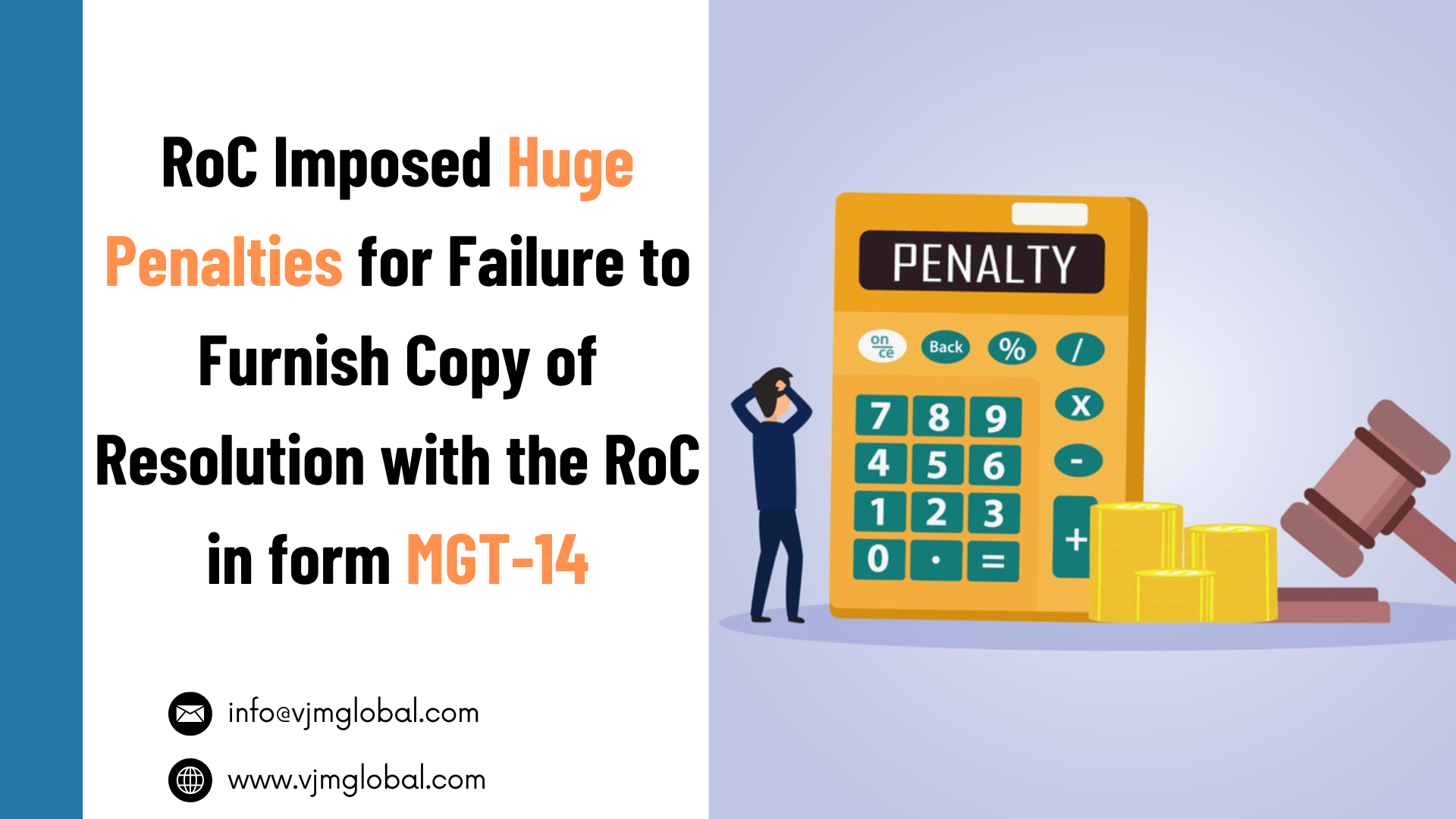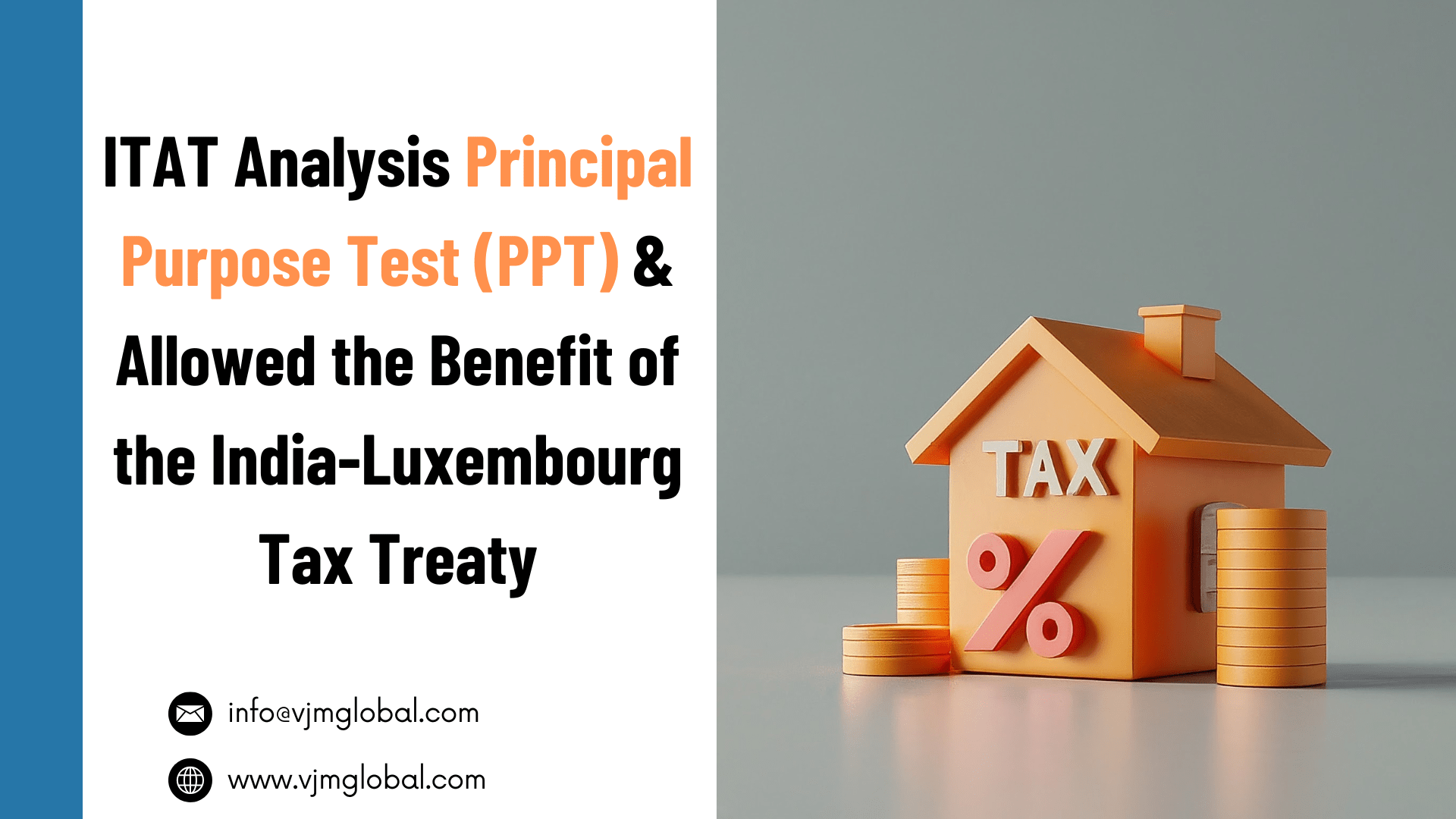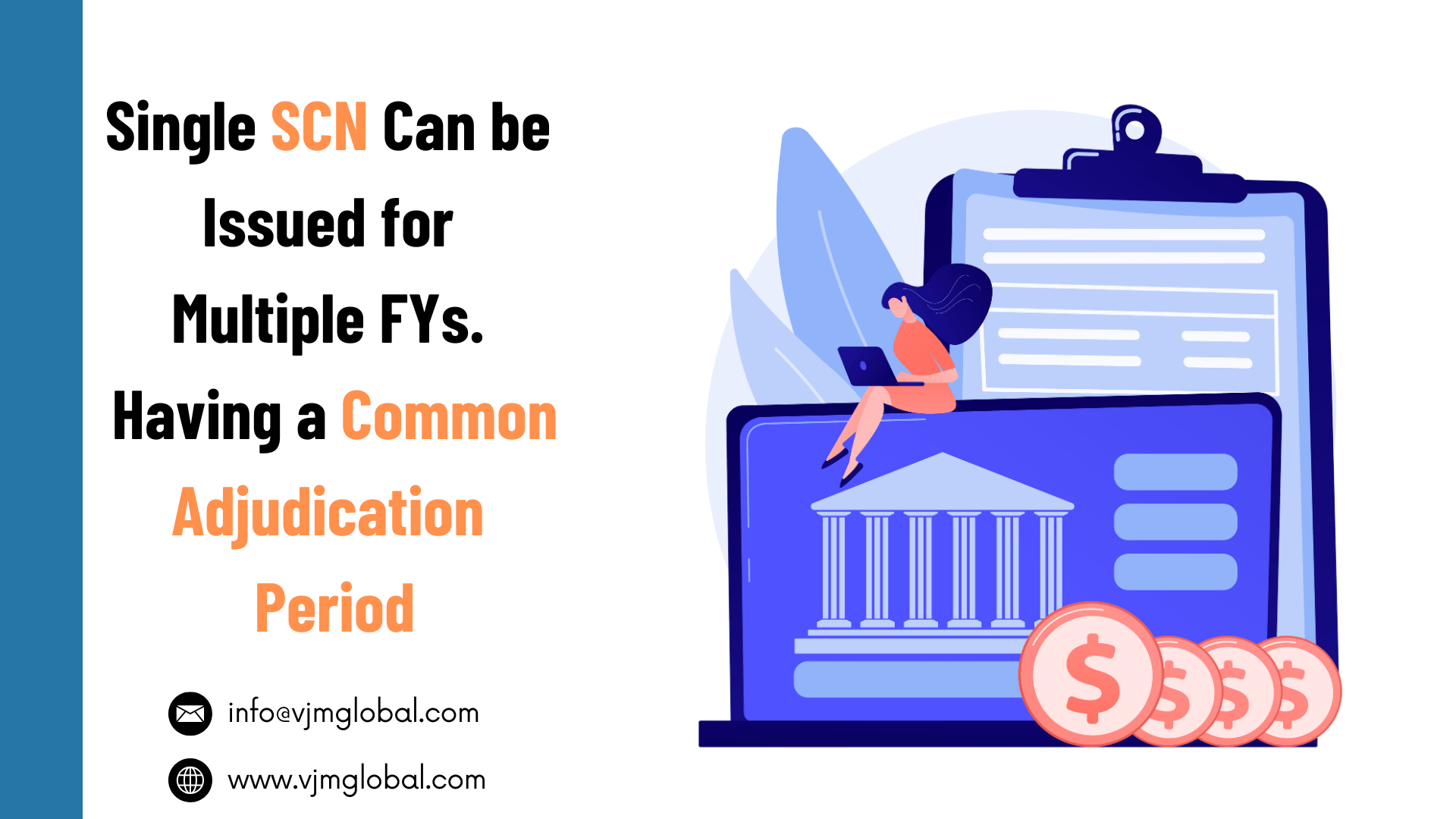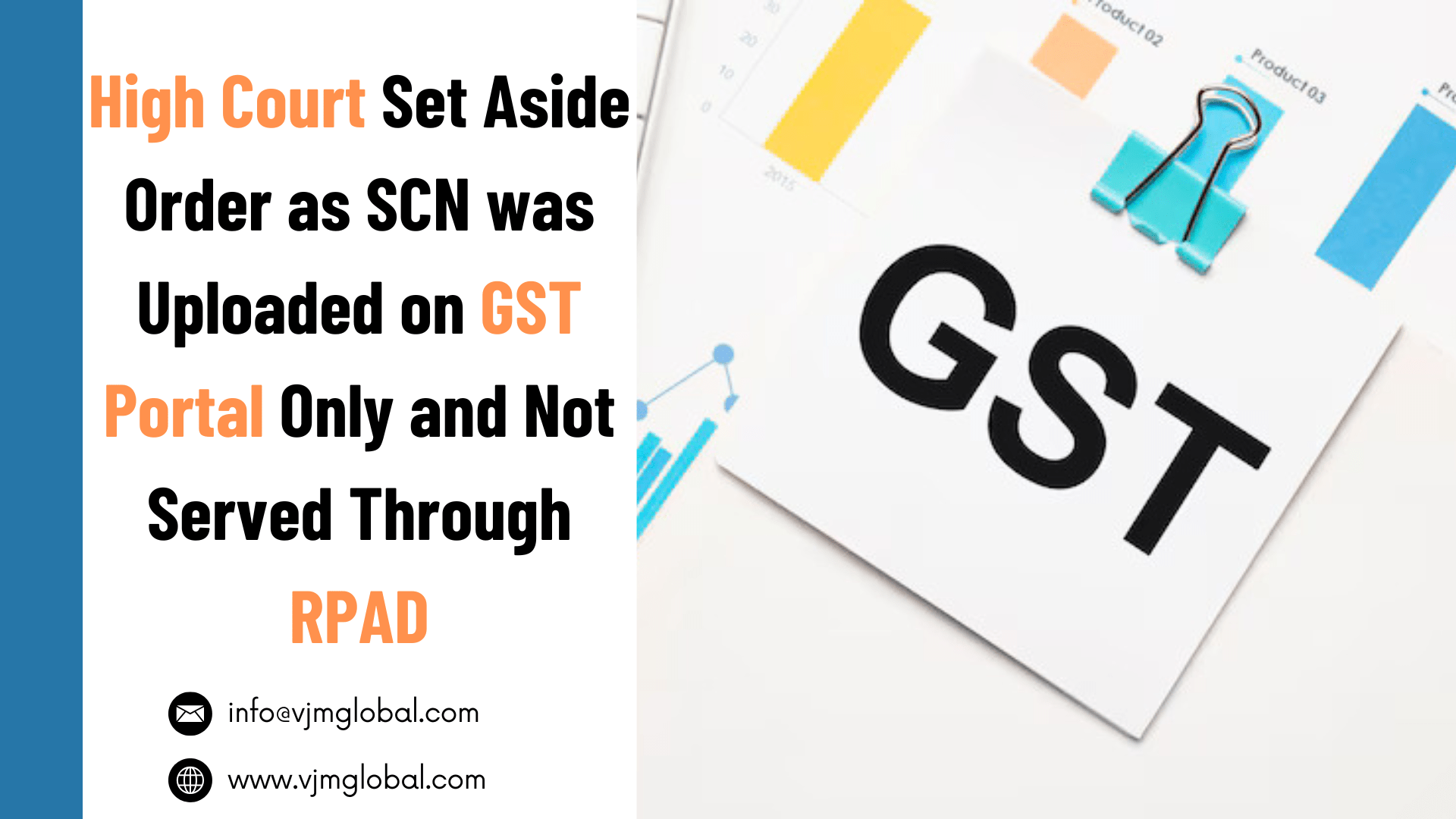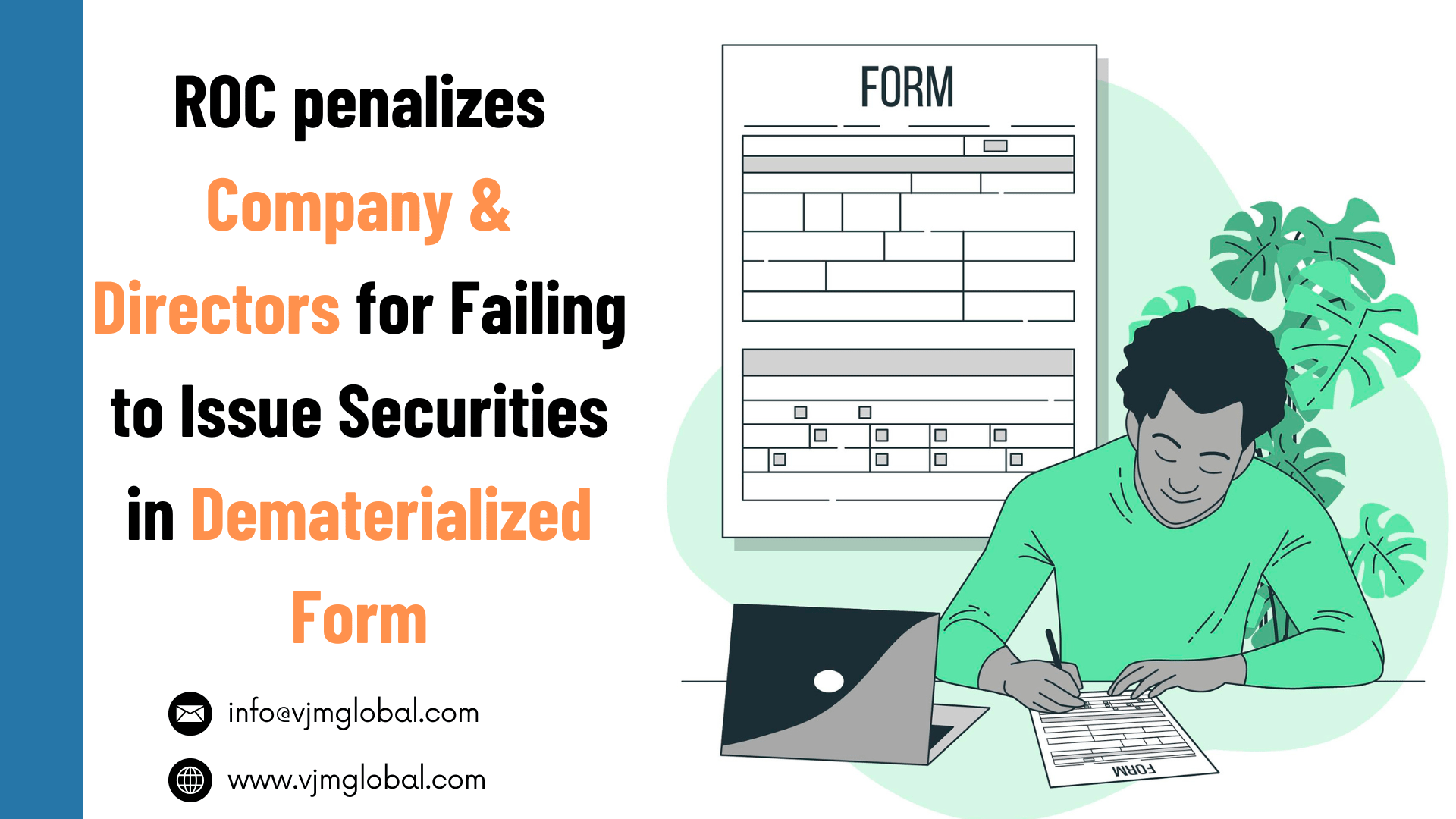Held by Hon’ble Madras High Court
In the matter of
M/s.Eicher Motors Limited Vs The Superintendent of GST and Central Excise (W.P.Nos.16866 & 22013 of 2023)
The Petitioner was having an accumulated Input Tax Credit under pre-GST regime. The petitioner filed GST TRAN-01 for transmission of such accumulated ITC under GST. However, due to technical glitches, entire amount of ITC was not transmitted under GST and complete amount was not available under electronic credit ledger of the petitioner. Therefore, petitioner could not file GSTR-3B for the month of July, 2017. Due to domino effect, the petitioner could not file GSTR-3B of subsequent months upto December, 2017. However, Petitioner deposited GST liability of every month by the due date by filing GST PMT-06. The petitioner filed pending returns upon resolution of glitch. The petitioner received notice for liability of payment of interest for delayed filing of GSTR-3B.
Hon’ble High Court held that tax amount collected by the assessee should be credited to the account of the Government by the due date of filing of monthly returns in terms of the provisions of Section 39(7) of the Act. Once the tax amount is paid by generating GST PMT-06, the said amount will get credited to the Government account immediately upon deposit. The tax liability will be considered as discharged to the extent the amount is deposited to the Government. Thus, it is immaterial whether GSTR-3B is filed within due date or not for remittance of tax to the account of the Government.
1. Brief facts of the case
- The petitioner is a renowned manufacturer of mid-sized motorcycles and has a manufacturing unit in Tamil Nadu.
- On the date of implementation of GST, i.e, 01.07.2017, the petitioner was having accumulated ITC from the pre-GST regime. The petitioner filed the Form GST TRAN-1.
- However, Due to unknown reasons, the entire amount of credit was not made available to the petitioner on GST Portal. Since, the entire amount of ITC did not reflect in the Electronic Credit Ledger, the petitioner could not file the GSTR-3B of July 2017 by the due date.
- Non-filing of Form GSTR-3B for July 2017 had a domino effect and the petitioner was unable to file the GSTR-3B for subsequent months as well.
- Though the petitioner was unable to file GSTR-3B, the petitioner still paid all the tax dues within stipulated date dates. The petitioner deposited the tax amount in the Electronic Cash Ledger.
- Post resolution of GST TRAN-01 issue, the petitioner filed all pending GSTR-3B for the period of July, 2017 to December, 2017.
- However, the petitioner received a Recovery notice, demanding the payment of interest on account of belated payment of GST from July, 2017 to December, 2017.
- The petitioner filed a detailed reply. However, the Department passed an order confirming the demand of interest against the petitioner.
- Aggrieved by such order, the petitioner filed the writ petition before Hon’ble High Court.
2. Issue involved in the Petition
The issue involved in the petition is whether the petitioner is liable to pay interest on the GST amount deposited in the Electronic Credit Ledger (ECL) by the due date. The Department contended that the deposit of tax in Electronic Cash Ledger would not amount to payment of tax.
3. Contention of the Petitioner
The Petitioner contended that:
- The tax amount is duly remitted by the petitioner to the Government treasury account maintained with RBI under respective heads, i.e, CGST, SGST and IGST.
- As per Explanation (a) to Section 49 of GST Act, deposit of tax amount to ECL is nothing but deposit in Government Account maintained with RBI.
- Amount deposited in ECL can be withdrawn by the Assessee unless a suitable order is passed by the Department. Therefore, the amount deposited in ECL belongs to the Government.
4. Contention of the Respondent
The respondent submitted that:
- The petitioner was required to file the monthly returns along with self-assessed admitted tax under Section 39(7) of the GST Act on or before 20th of the succeeding months.
- However, the same was belatedly filed by the petitioner for the period from July, 2017 to December, 2017.
- Hence, by virtue of Section 50 of the Act, the petitioner was liable to interest.
- Further, the non-availability of “Transitional Input Tax Credit” has no bearing on filing of monthly GSTR-3B.
- The petitioner is only an “authorised agent” to collect the GST on behalf of the Government and they are responsible to remit the same on or before the due date to the government. Failure in timely deposit will attract the “compensatory interest” under Section 50 of the GST Act.
- Further, the amount deposited in the petitioner’s own ECL is not the tax paid to the Government, unless the said amount is debited while filing the monthly GSTR-3B returns.
- As per Section 49(3) of the GST Act, the amount available in ECL may be used for making any payment towards tax, interest, penalty, fees or any other amount payable under the provisions of this Act or the Rules made thereunder.
- Therefore, the tax liability is self-assessed by the taxpayer by filing GSTR1 returns and the tax amount is paid by filing GSTR-3B after the debiting such amount from the ECL only.
- Only after debiting in ECL, the tax liability is said to be discharged. Otherwise, the said amount reflects as credit balance in ECL, which the petitioner can get back at any time by filing a refund application under Section 54 of GST Act within a stipulated time limit.
5. Analysis by Hon’ble High Court
The Hon’ble High Court made following analysis:
5.1 Non-filing of return by the petitioner
- The petitioner was not available with the entire amount of ITC transitioned from pre-GST regime, therefore, the petitioner could not file the monthly return in Form GSTR-3B for July 2017.
- Due to such non-filing of Form GSTR-3B for July 2017, the petitioner was unable to file the GSTR-3B for subsequent months upto December, 2017.
- Though the petitioner was disabled from filing the returns, the petitioner discharged his GST liability without any delay by depositing the tax amounts both in the Electronic Credit Ledger and Electronic Cash Ledger.
- The GST Council, in its 26th meeting, recommended reversal of late fee paid by the taxpayers on filing the Form GSTR-3B due to delay in filing Form GST-TRAN-1.
- The GST Council waived the late fee due to the technical glitches.
- Further, if an Assessee had failed to file the Form GSTR-3B returns for a month on the due date, he cannot be permitted to file the Form GSTR- 3B returns for the subsequent months in terms of the provisions of Section 39(10) of CGST Act.
- It is a clear provision that prior to the filing of the Form GSTR-3B, the tax should have been paid by using GST PMT-06.
5.2 Due date for payment of tax
- As per Section 39(7) of CGST Act, for payment of tax to the Government, filing of GSTR-3B is not the matter. However, the last date for furnishing the monthly return is important.
- Whether the monthly return is filed in time or not, but the GST is required to be remitted upto to the last date for filing the monthly returns.
- Thus it is immaterial whether GSTR-3B is filed within the due date or not for remittance of tax to the account of the Government.
5.3 Control of funds in Electronic Credit ledger
- The date of credit to the account of the Government in an authorised bank shall be the date of deposit in the Electronic Cash Ledger.
- It is not correct to state that payment of tax would occur only upon the filing of GSTR-3B return and after debiting the electronic credit ledger or electronic cash ledger.
- Once the GST is deposited, it is made available to the Government for their use and the Government cannot wait or postpone the utilisation till the date of filing of the GSTR-3 or GSTR-3B.
- Hence, From the moment GST is deposited by generating GST PMT-06, it is the money of the exchequers, since the money was collected only under the name of the exchequer in the form of GST.
- Therefore, for payment of tax to the account of the Government, the filing of GSTR-3B is immaterial.
5.4 Applicability of interest under section 50 of the CGST Act
- Interest, if any, under section 50(1) of the CGST Act will be applicable on the amount that is not paid before the due date of filing returns.
- The respondent’s contention that only if the debit entry is made to the ECL then only it will be considered as the date of actual payment of tax.
- On the contrary, section 50(1) of the CGST Act states that cash should be paid to the government within the prescribed period, which is the 20th day of every month in terms of section 39(7) of the CGST Act.
- This prescribed period is the only time limit provided under section 50(1) of the CGST Act.
- The Gujarat High Court has also clarified that interest is not payable, since the tax amount has already been credited to the government within the prescribed time limit, i.e. before the due date.
- The correct application of the proviso to section 50 of the CGST Act should ensure that it does not travel beyond the provision, to which it is a proviso. A proviso only carves out an exception and to the main provision, to which it has been enacted as a proviso to no other.
- The Division Bench of the Jharkhand High Court in a previous decision had interpreted the said proviso in such a way that the proviso will override the provision and thereby alter the date for payment of tax to the government, which is not permissible and contrary to the provisions of section 50(1) of the Act.
6. Conclusion
- The credit to the account of the Government should always occur by the due date of filing of monthly returns in terms of the provisions of Section 39(7) of the Act.
- Once the tax amount is paid by generating GST PMT-06, the said amount will get credited to the Government account immediately upon deposit. The tax liability will be considered as discharged to the extent the amount is deposited to the Government.
- Therefore, If there is any default in payment of GST, even subsequent to the due date for filing the monthly returns i.e., on or before 20th of every succeeding month, for the said delayed period alone a registered person is liable to pay interest in terms of Section 50(1) of the Act.
- Accordingly, the impugned order are liable to be quashed.

